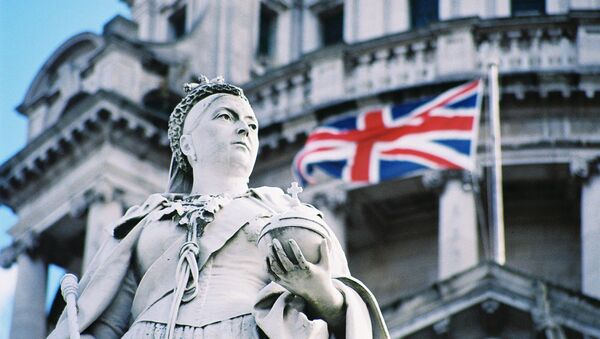As UK Prime Minister Theresa May revealed to the Conservative party conference that she would begin the EU divorce process by triggering Article 50 by the end of March next year, a lawyer for anti-Brexit campaigners has said that Northern Ireland could veto the UK's exit from the EU.
Representing a cross-party Northern Irish legal challenge to Brexit, Ronan Lavery QC, argued Brexit could not be imposed on Northern Ireland due to clauses in the Good Friday Peace Agreement, saying the province had some control over constitutional changes such as leaving the EU.
#Brexit Ronan Lavery,QC, lawyer for Raymond McCord tells Belfast High Court Brexit could have a “catastrophic effect on the peace process".
— Gerard Moriarty (@GerryMoriartyIT) October 4, 2016
"Sovereignty over constitutional affairs has been ceded [by the UK]. It is not the relationship, as it might once have been, between a dominant partner and a submissive partner.
"The people of Northern Ireland have control over constitutional change, it cannot be imposed upon the people of Northern Ireland. If that means that Northern Ireland could exercise a veto over withdrawal then I am [asserting] that is what Britain signed up to when it signed the Good Friday Agreement," Mr. Lavery said.
Mr Lavery was arguing that even those who want Brexit should oppose NI being taken out of EU in (he said) an unconstitutional way (2/2)
— Sam McBride (@SJAMcBride) October 4, 2016
The Good Friday Agreement, ratified by a referendum in 1998, is seen as key in the Northern Irish peace process, while it also led to the creation of a number of institutions between Northern Ireland and the Republic of Ireland.
While PM May has said the Brexit trigger process can be launched under a royal prerogative, others have called for a parliamentary vote before Article 50 is officially triggered.
Hard Border Concerns
The developments come amid concerns that a hard border could be reinstated between Northern Ireland and Republic of Ireland in the wake of Brexit, with the UK government pledging to introduce immigration controls against EU citizens.
Irish Foreign Minister Charles Flanagan, has said that both London and Dublin would apply for special legal status in order to maintain the existing open border between the two countries, despite the fact that it would allow EU citizens to freely travel to UK territory without passport checks, and vice versa.
What will hard #Brexit mean for #NorthernIreland border? Return to hard border? Not exactly great news.
— Grace Cuddihy (@GraceCuddihy) October 3, 2016
However there are fears that if the UK leaves the European single market, then the EU may demand a hard border between Northern Ireland and the Republic of Ireland, which many locals believe would be disastrous for both.
Any establishment of border controls is likely to have a much greater impact on the north's economy, with a third of Northern Ireland's exports in 2015 going to the Republic, while only 1.6 percent of the Republic's exports were sold in the north.
David Davis of @DexEUgov refers to recent visit to Northern Ireland and restates belief there won't be hard border pic.twitter.com/UkVt6nnBWA
— Anthony Soares (@antsoares67) September 5, 2016
"We have all been concerned for some time at the direction the government is going to take. It is very disturbing," deputy first minister of Northern Ireland Martin McGuinness told broadcaster RTE.
Sectarian Tensions
On top of the legal and economic impacts associated with Brexit, some have argued the UK's removal from the union could also reignite sectarian tensions in Northern Ireland.
Following decades of violence associated with The Troubles, the 1998 Good Friday Peace Agreement has been widely regarded as a positive factor in bringing peace to the region.
What will become of border between Northern Ireland (UK) and Ireland (EU)? Anti-Brexit crowd feared will harden, reinflame tensions
— Daniel Marans (@danielmarans) June 24, 2016
While overall the UK voted in favour of leaving the union in the June 23 referendum, 56 percent of Northern Irish voters chose to remain in the EU, with serious divides within politics and society.
The pro-union Democratic Unionist Party support Brexit, however Northern Irish affiliates of the Labour and Green parties, along with Irish republican party Sinn Fein have challenged to decision to leave the EU, arguing that it could undermine the work of the Good Friday Agreement and see a return to tensions in the region.



